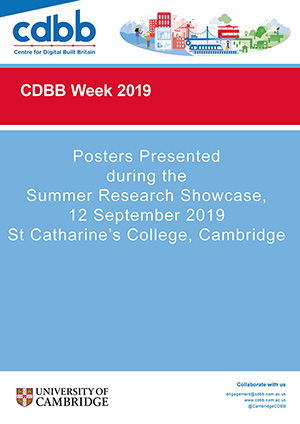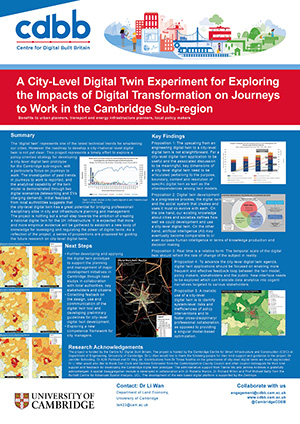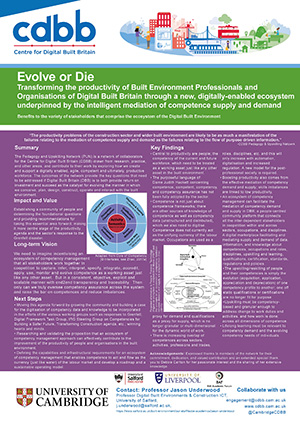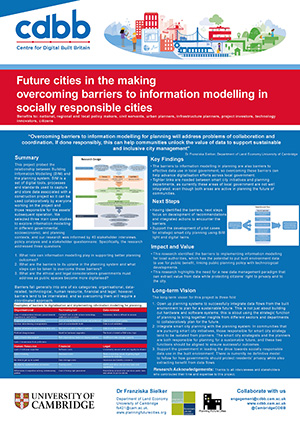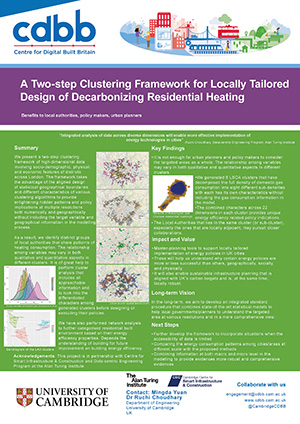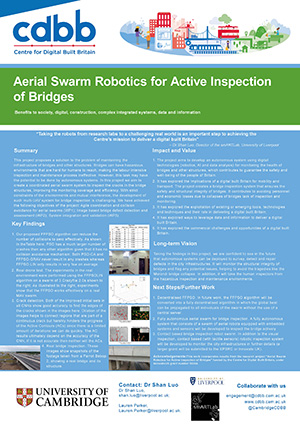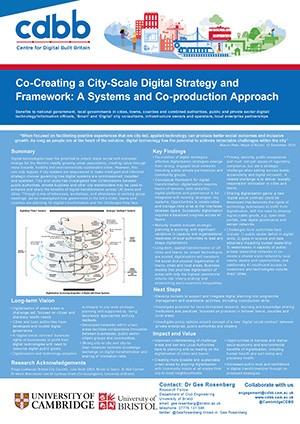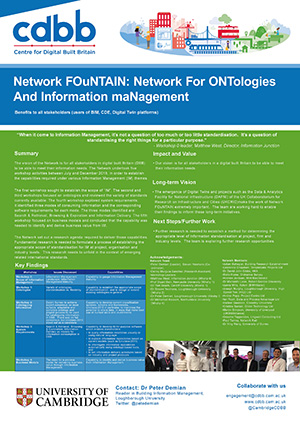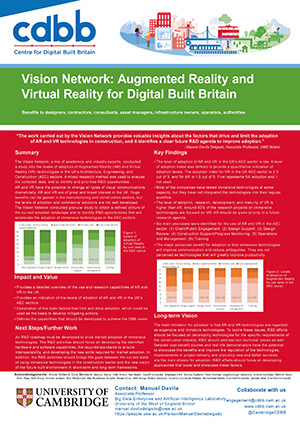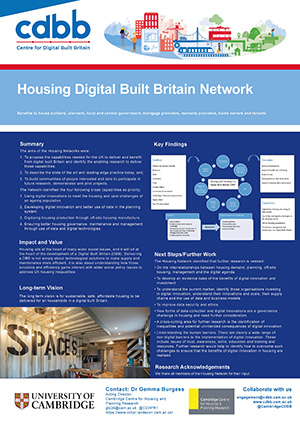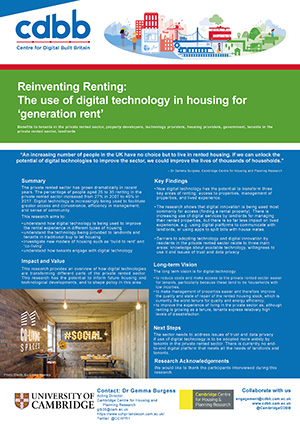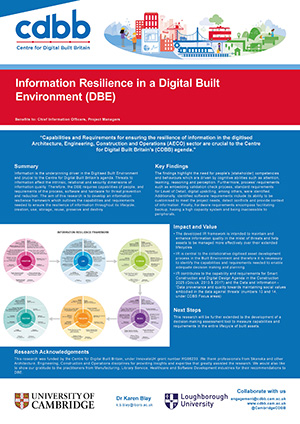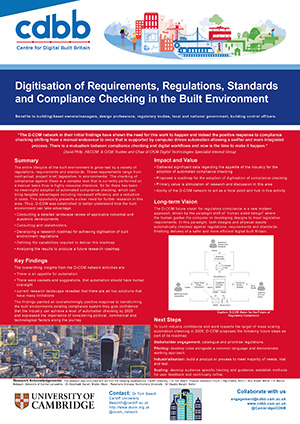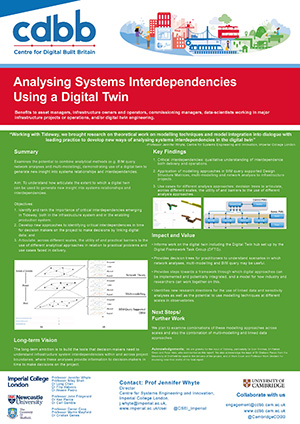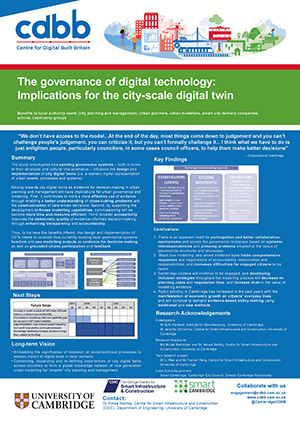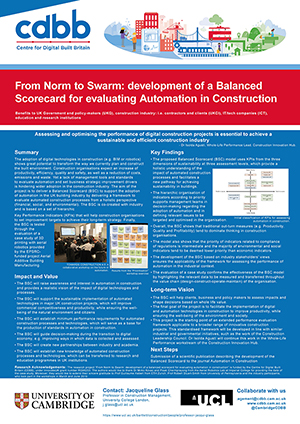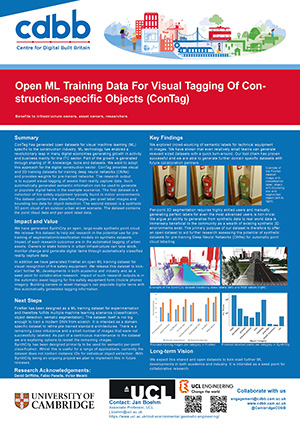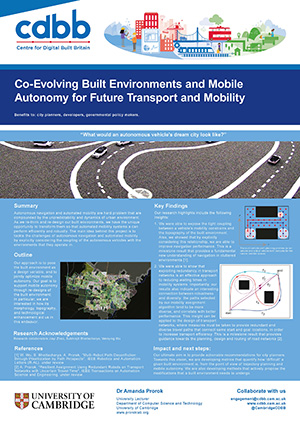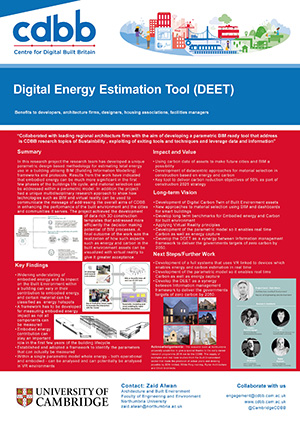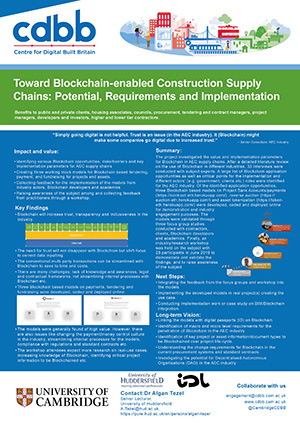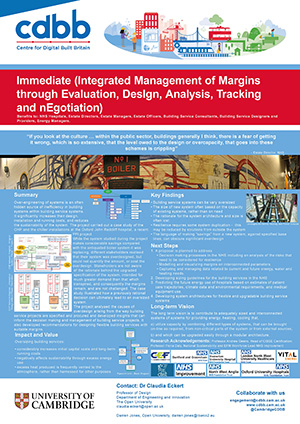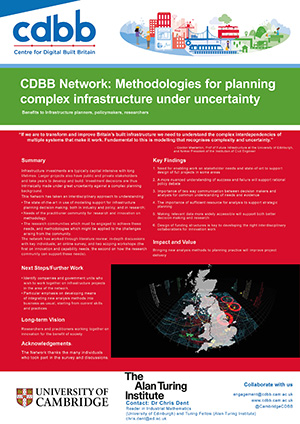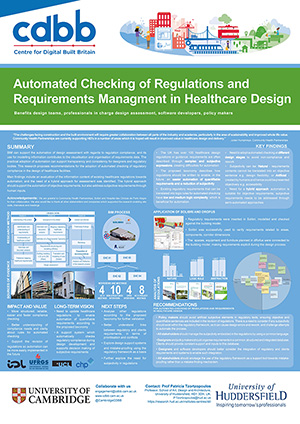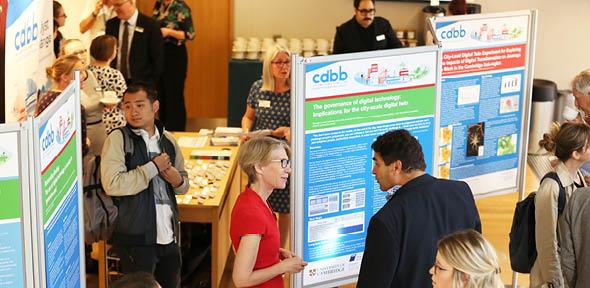
Submitted by Angela Walters on Sat, 21/09/2019 - 20:30
The CDBB summer showcase
CDBB held its second Summer Showcase in Cambridge on Thursday 12 September 2019 - which is now included within a larger set of activities named ‘CDBB Week’. A large and appreciative audience joined us to hear about the progress CDBB is making and listen to a series of rapid-fire presentations demonstrating the huge range of CDBB-supported research.
Where digital and physical worlds collide
The event got off to an inspirational start with keynote speaker Paul Clarke, Chief Technology Officer at Ocado. Paul described how Ocado has disrupted the world of distribution centres. Miles of conveyor belts and thousands of crates have been swapped for optimised grids in which swarms of robots can pick and pack orders within minutes.
No-one else was doing this when Ocado embarked on its mission to change the way the world shops. Key to the company’s success has been the adoption of digital technologies such as AI, machine learning and robotics, all propelled by the huge amount of data Ocado collects about every aspect of its business. By using end-to-end simulations – or digital twins – it continuously optimises its hugely complex systems, finding better ways of doing things without compromising the day-to-day running of the business. Ocado robots are also benefiting from continuous upgrades, learning, for example, how to pick up a wine bottle without dropping it. And AI is being used to build an ‘Ocado’ brain that will ultimately drive efficiency, reduce error and help customers to shop faster and with less friction.
From smart shopping to smart government
But Paul’s ambitions don’t stop at shopping. The expertise his team is developing can be applied to almost every aspect of the way we live our lives. His vision is of a truly smart UK, in which national, regional and local systems are digitally mapped and these maps are used in conjunction with a series of living labs in which citizens can help to decide how new technologies should be deployed in the real world.
This vision is well on its way to becoming a reality. Paul and his team are already working with a business park in Hertfordshire to explore how technologies such as autonomous vehicles, drones, robots and smart infrastructure will impact on peoples’ lives, and give citizens the opportunity to understand and participate in decisions about their adoption. The plan is to scale up the process to county and, eventually, to national level.
Fragmented and wasteful supply chains are also in Clarke’s sights. How can we move goods around the country more efficiently and with less environmental impact? His solution: an ‘internet of freight’ with common standards and shared middleware that can deliver economies of scale, better use of scarce resources and lower levels of pollution.
In his closing remarks, Clarke told the audience that if we are to bring about the scale of change needed to run organisations and countries more effectively, we are all going to have: “to think way bigger and more disruptively.”
Read more from Paul Clarke in his blog featured on the CDBB website: www.cdbb.cam.ac.uk/news/blog-paul-clarke-ocado-considers-where-physical-and-digital-worlds-collide
CDBB update from Professor Andy Neely
Professor Andy Neely, CDBB Director and University of Cambridge Pro-Vice-Chancellor for Enterprise and Business Relations, talked about CDBB’s work in the last year and the huge strides it has made in a very short space of time. In 2019, CDBB became one of three partners in the newly formed Construction Innovation Hub which has been awarded £72 million of funding over four years to deliver the UK government’s strategy for the construction sector. Andy stressed the UK’s need to build new capabilities if it is to succeed in transforming the sector and explained how CDBB is helping develop those capabilities through research, by supporting policy development and by proactively bringing about change. In this regard, CDBB is part ‘discovery engine’ – helping new ideas and approaches flourish – and ‘delivery engine’ – making sure those new ideas are turned into reality.
For CDBB this translates into five key priorities:
- Supporting the UK implementation programme and working with a wide range of partners to bring about change.
- Developing a strong international programme to help other countries benefit from the UK’s expertise and to create an export market for UK products and services.
- Creating demonstrators to show the potential of new technologies and working practices.
- Launching the National Digital Twin programme to improve the performance of the UK’s infrastructure.
- Supporting the research which will lead to new technologies and help us to understand the complex economic, social and ethical issues surrounding digital transformation.
Andy stressed that: “Although based in Cambridge, CDBB is a national programme, designed to support industry and make change happen. But we can’t do everything. An important part of our role is hosting events like this which bring people together, show what needs to be done and inspire others to play their part in building our digital future.”
The CDBB ‘discovery engine’
Next we heard from those CDBB-funded researchers who are driving discovery. CDBB recognises that digital transformation will not happen overnight. Building a strong cohort of researchers who are at an early stage of their careers is vital, therefore, for long-term success. Ten of these early-career researchers presented on a wide range of topics, ranging from the use of aerial robot swarms for bridge inspections, tools for visualising – and hence, reducing – energy usage, and how information modelling can support better, more democratic local decision-making.
We also heard about seven ‘General Projects’ – open to anyone researching topics that are aligned with CDBB’s mission – and reports from the six ‘Research Networks’ which were established to identify those capabilities needed by the UK if it is to deliver a digital built Britain.
You can read about all these ECR project, general research projects and networks on the CDBB website. You can also look at the research posters here
and see how the day unfolded on social media here or view the photos from the day here.
We recorded the short presentations and the videos will be available soon, please sign up to our newsletter to receive the latest information on our CDBB Week outputs.
The wider Cambridge community
Dr Jennifer Schooling, Chair of the Research Strategy Advisory Group for CDBB and Director of the Centre for Smart Infrastructure and Construction (CSIC), closed the event, introducingthe range of construction-related work underway at Cambridge, notably at CSIC with its focus on designing smart city systems and managing the condition of infrastructure throughout life.
The day ended with a lively networking session, where plans were undoubtedly hatched amongst the community of researchers, policymakers and industrialists, to think bigger and more disruptively.
Li Wan
|
Jason Underwood
|
|
Franziska Sielker
|
Ruchi Choudhary
|
|
Shan Lao
|
Ges Rosenberg
|
|
Peter Demian
|
Manuel Davila
|
|
Gemma Burgess
|
Gemma Burgess
|
|
Karen Blay
|
Tom Beach
|
|
Jennifer Whyte
|
Timea Notcha
|
|
Jacqueline Glass
|
Jan Boehm
|
|
Amanda Prorock |
Zaid Alwan |
|
Algan Tezel |
|
|
Chris Dent |
Patricia Tzortzopoulos |
|
Algan Tezel |

